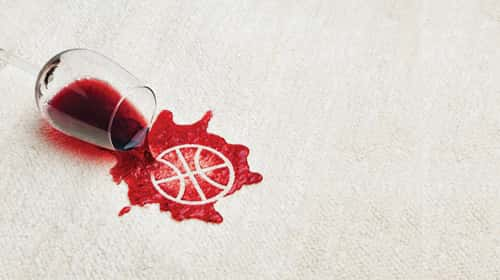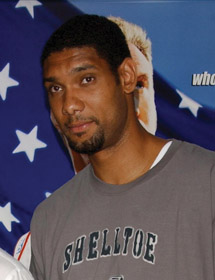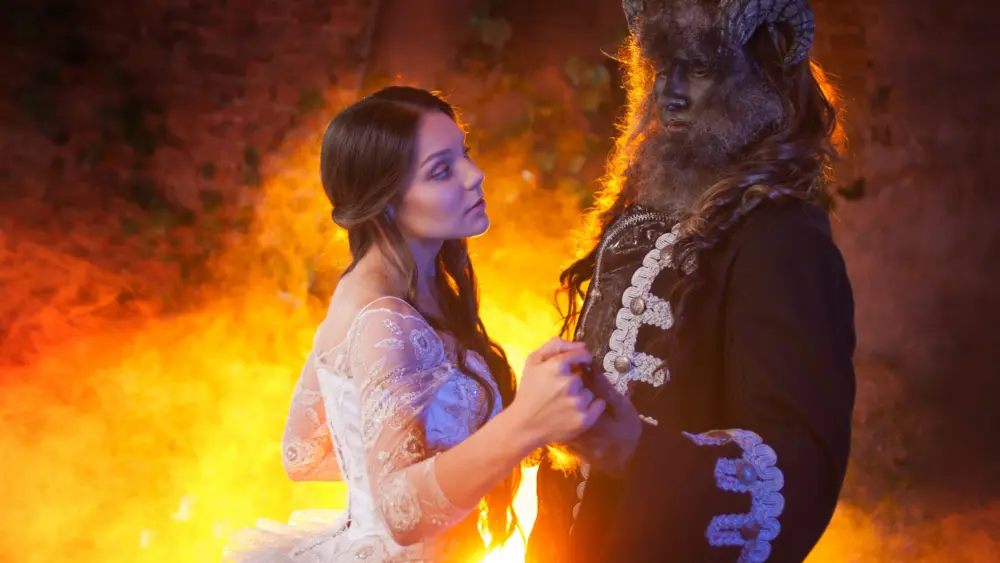Wine Country lore is full of those who made their fortunes starting at the bottom, working the land, walking the vineyard and carefully seeking the perfect grapes.
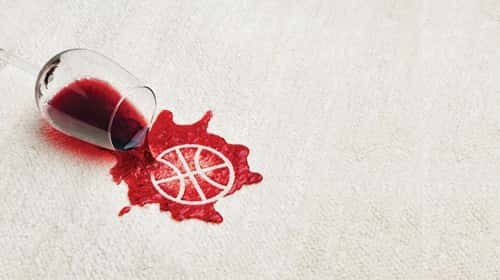 Not Charles Banks.
Not Charles Banks.
Banks came from money, literally. A successful wealth manager with CSI Capital, he worked in the world of famed basketball stars like Kevin Garnett and Tim Duncan. But he was bitten by the wine bug. According to published accounts in publications like Wine-Searcher, Banks says when he and his wife, Ali, hosted their first dinner party as a married couple, he was set to buy a couple cases of beer, but his wife set him straight, telling him beer would not cut it. Ali said he was to buy wine. Having no experience with the grape, he went to an Atlanta shop and put himself in the hands of its staff. He toted home two mixed cases and was greeted by Ali who said, “Who buys two cases of wine for a dinner party?”
For an outsider without much of a wine pedigree, Banks has enjoyed a maverick’s success. He and billionaire partner Stan Kroenke took Screaming Eagle from a winery with a pretty good Cabernet Sauvignon to cult status, in part by plowing under acres of vineyard. He and other partners took a former cattle ranch in Santa Barbara that was declared unusable for wine and turned it into a winery, producing wine at a clip of $100 a bottle, a price then unheard of on the central coast.
And for all of this quirky good fortune, nobody wants to chat about Banks. Why?
It may have something to do with the criminal indictment handed down last September in which the Department of Justice in San Antonio lays out the case that Banks took Tim Duncan formerly of the San Antonio Spurs for millions. Or it may have something to do with a similar action alleged in court papers by the Securities and Exchange Commission.
While the wine business is at its most fundamental level about dirt and fruit, the toil of the soil is far from the image projected in stone-cut tasting rooms and stemmed crystal glasses filled with world class Cabernets. The romance of the vine is tempered by the realities of money and manners. Gossip flows quietly and word of Banks’ fall from grace made the rounds in the tight knit wine circles in Napa and Sonoma. Asked about his investment holdings at Mayacamas or Wind Gap or Agharta or Leviathan or Whetstone, or his impact on the local scene, and well, crickets. The winemakers and others in the industry were polite, but they took a pass.
Some of the silence might be chalked up to the social protocols and etiquettes of Wine Country, where folks would rather talk about brix than return on investment. Banks faces 40 years in prison and has gone from being a suit to a wine entrepreneur and now an accused criminal, free on $1 million bail. He has no criminal record, nor a public history of swindle. While it’s possible those in the grape trade may have been simply polite, another reality might be at work here.
Not much about the Charles Augustus Banks IV matter makes sense.
The arrest
The sun was still climbing on that September morning as FBI agents pulled a handcuffed Banks out of a white van, and led him into a San Antonio courtroom to be arraigned.
Once inside the court room, he was uncuffed and handed off to deputies while he waited his turn with the court. A legal formality, Banks stood quietly before the judge as his lawyer and those representing the government conferred with the judge and the charges were read.
Bespectacled and holding hands with his wife, he emerged into the heat of the day a short time later after posting $50,000 cash bond, part of a $1 million bond to secure his freedom from charges of fraud. Though the temperature would climb to 93, Banks and his wife looked cool enough as they left the federal building.
The indictment unsealed that morning, charged the 49-year-old Banks with defrauding former NBA star Tim Duncan. Banks is the founder of Terrior Capital, a firm that has holdings locally such as Mayacamas and Wind Gap as well as wineries in France and New Zealand, even a label out of South Africa.
Duncan, a 6-foot-11-inch, all-star power forward who played his whole career for the San Antonio Spurs was one of Banks clients, helping to invest the millions that came his way over a 19-year career. A federal grand jury returned an indictment against Banks last September alleging that he talked Duncan into loaning Gameday Entertainment LLC $7.5 million in 2012. At the time, Banks was chairman of Gameday and benefited from the loan. He also manipulated Duncan into guaranteeing $6 million of Gameday’s debt by misrepresenting the transaction, according to the federal action. Banks also neglected to tell Duncan about the commissions, payments and loans he was pulling down from Gameday, according to court documents. The indictment charges Banks with two counts of wire fraud. Each count carries a possible 20-year sentence.
The indictment alleges that in June 2013, Banks faxed unsigned signature pages to Duncan regarding his guarantee of $6 million in loans as well as subordination documents, and then sent the documents to Comerica Bank. Duncan says his signatures on those documents were forged. The FBI investigated the transactions between Banks and Duncan for more than a year.
Duncan had previously sued Banks in January 2015 and brought a second suit in November of that same year. Duncan’s lawyers say Banks met Duncan in 1997 when Duncan was fresh off the campus of Wake Forest and the first player taken in the NBA draft. Banks advised Duncan on financial matters until he left CSI Capital Management in 2007.
After leaving CSI, Banks founded his own firm, Terrior Capital, and urged Duncan to invest in a wide variety of ventures, from wineries to hotels, but didn’t tell his client that he either owned or had invested in the deals. In all Duncan says he lost $25 million to Banks. The former hoop star told the San Antonio Express News in August 2015, “He’s [Banks] acted, to put it as politely as possible, dishonestly in his representation as my financial advisor.”
Banks denies the charges, saying Duncan went through a divorce and simply wanted out of a number of deals that the two men were involved in. Banks told Wine Spectator that Duncan’s charges are “completely false. He has been paid. It’s been a good investment for him. He’s made over $2 million since October 2012.”
One of Duncan’s actions against Banks is tied to Gameday and is being litigated via an arbitration. The second action springs from an investment where Banks allegedly steered Duncan into investing in a cosmetic company with a promise that Banks, who was already an investor, was investing alongside Duncan and that the company, Le Metier Beauty, was profitable. But Le Metier was in the red and Banks’ money allegedly stayed in his pocket. That case is ongoing. The cosmetic company filed for Chapter 11 bankruptcy protection in 2014.
Banks joined other investors in a lawsuit against Le Metier in 2013.
Ironically, Duncan is still invested with Banks. He claims he has stayed in those investments in the hope of recouping some of the losses from his previous dealings with Banks.
John Murphy, a San Antonio criminal defense lawyer representing Banks, declined to discuss his client or to make him available for an interview. Murphy’s keeping his client under wraps is standard practice in criminal actions, but Murphy, a southern gentleman, apologized for not helping.
He plans to ask the court for a change of venue, in part because of the media attention but mostly because of Duncan’s standing in San Antonio. “Let’s face it, people around here love him,” Murphy says. “I’m also not talking because the judge isn’t wild about reading about this and it wouldn’t look very good if I did interviews.”
The attorney did say he would ask the court to move the trial to the California Central Coast. The San Antonio court set April 17 as the day jury selection could begin for a trial.
Before Murphy slapped a gag order on his own comments, he told reporters gathered outside the San Antonio courthouse, “He (Banks) is a long-term successful businessman, a family man, a church man. We’re confident that when all the facts and circumstances come to light, everyone will see that there’s another side, and that he is innocent of these charges.”
The cases by the government are the only legal skirmishes that have emerged with Banks. At one time, he headed up CSI Capital and investment and advisory firm which boasted 150 pro athletes as clients with $400 million in assets under management. The San Francisco-based firm was acquired by SunTrust Banks in 2011.
Other legal issues
The criminal woes are not the only legal issues chasing Banks through the vineyards. The Securities and Exchange Commission (SEC) would also like a piece. It brought a civil lawsuit last September in federal court in Atlanta, alleging the Gameday investment was part of a story Banks told Duncan, saying another investor was coming on board and the total amount to be invested was $15 million. The cash would go towards the company’s operation and paying off bank debt. But the SEC says no other client existed and Banks pocketed $543,000 as well as a $225,000 fee. The regulator also claims that Banks skimmed $15,000 from a monthly $75,000 interest payment to Duncan for two years.
While San Antonio is a long way from the North Bay, It isn’t as if Wine Country is a stranger to scandals. In 2015, it was discovered that Jeff Hill had hijacked grapes in 2013 harvested for Howell Mountain Vineyard and hauled them instead to Hill Wine Company. That company filed for bankruptcy protection and Hill, who was called a “vineyard terrorist” in open court, was found guilty of two counts of grand theft and sentenced to a year in jail.
That same year, more than 70 wineries were hit by a cyber-thief who lifted credit card information belonging to more than 250,000 wine customers.
And who can forget Mark Anderson laying down in federal courtroom while being tried for setting a 2005 fire at Mare Island in Vallejo. The blaze, started by gas soaked rags, destroyed 4.5 million bottles of wine from 92 Napa Valley wineries and more than 40 collectors, all to cover up Anderson’s fraud. NorthBay biz covered that tale in “Don’t Go in the Cellar” (October 2008), which later aired as an episode of CNBC’s “American Greed.” Anderson was sentenced to 27 years in the company of Uncle Sam.
But the Banks’ case feels different. To begin with, Banks is an outsider. The region is dominated by family names such as Mondavi, Gallo, and Sebastiani, where success in the wine business began with hard work anchored by generations learning the ropes.
The history
Banks lives in Atlanta and spends time in Los Angeles. His background is in finance, not viticulture or oenology. He came to wine not so much as someone steeped in the soil and brix levels. His lexicon has more to do with return on investment and carried interest.
Another quality that sets Banks situation off from scandals like the Anderson fraud is that the DOJ and SEC cases spring from the same set of interactions between Banks and Duncan. Looking into the Anderson fraud was like peeling an onion, with every interview more inconsistencies and tall tales were revealed, a pattern of deceit and betrayal followed Anderson around like a little puppy for anyone with a little investigative skill to probe.
But so far, no other investors have come forward to claim that they have been cheated by Banks. No investors have filed federal lawsuits, according to the database Pacer. And no other parties were included in the DOJ action. This is not to say that other civil suits haven’t been filed by disgruntled investors, or that they won’t be, but to date, Duncan and the feds are the only folks saying that Banks is playing fast and loose.
As a matter of fact, a current investment partner defended Banks at the time of his arrest last September. Bob Lindquist, the founder of Qupe Winery outside Santa Barbara, sold a controlling interest in Qupe to Banks in 2013. Following Bank’s arrest, he told the Santa Barbara Independent that, “Charles is a standup guy and has been a big supporter of what I do. Terrior and Qupe are separate from these dealings and have no effect on us.” Lindquist was not available for an interview with NorthBay biz.
While most stub their toe as they learn the wine trade, Banks seemed to have the Midas touch from the start. He went into the Santa Ynez Valley in Santa Barbara with Hollywood producer Arnon Milchan and media mogul Jerry Levin as the least financially stable partner of the trio, the other two were billionaires. They started Jonata Winery in 2000 by planting 10 different varietals to see what would grow, with a game plan to keep what was bountiful and cast off what wasn’t. The legend goes that a French winemaker was brought in to assess the land, a former cattle ranch. Looking at nearly 600 acres, the winemaker declared five acres hospitable to growing grapes. The balance, he said, was good for growing asparagus.
They cast aside his doubts, planting about 80 acres. By 2007, the trio were producing estate vintages wine, which caused famed critic Robert Parker to proclaim one, “the finest Cabernet Franc to emerge south of San Francisco.” Parker’s praise came in handy when the debut wine priced out at $100, a price point not seen before in that region.
None of the trio are involved with Jonata anymore, as it’s owned by billionaire sports tycoon Stan Kroenke, a former Banks business partner.
Kroenke (who owns the LA Rams, the Denver Nuggets, the Colorado Avelanche and the Arsenal soccer team), doesn’t grant interviews. It’s said the pairing between Banks and he did not end joyously. All Banks ever said about the parting is that Kroenke didn’t want a partner anymore.
After Jonata, Banks started Terroir Capital to invest in wineries and hospitality, starting the Terrior Hotel Fund 1 and 2 and the Terrior Winery Fund and searched for opportunities in wine regions all over the world. The firm’s portfolio includes Mulderbosch and Fable Mountain in South Africa as well as Trinity Hills in New Zealand, and Qupe in Santa Barbara. Closer to home there is Agharta and Wind Gap in Sebastopol, Mayacamas on Mount Veeder, and Whetstone Wine Cellers in Napa.
Banks owns Mattei’s Tavern in Los Olivios and is redeveloping the property. The Tavern is closed and will reopen in 2018. He also had interests in Blackberry Farm in Tennessee as well as stakes in the Meadowood Resort in Napa and Post Ranch Inn in Big Sur.
If planting acres of grapes against the advice of a French winemaker was a different way of doing things, then the approach that Banks and Kroenke took after buying Screaming Eagle was downright strange. Because most of the grapes grown on the Screaming Eagle property were being sold to other vintners, Banks ordered that 70 percent of the acreage be cleared, saying he didn’t want anyone bragging they were using Screaming Eagle fruit. But the move paid dividends in a different way. By taking the land out of production, it released Screaming Eagle from production contracts and created a scarcity of grapes. The winery now had less fruit to draw from and less capacity, which in turn helped fuel a shortage of its wine and drove the price up. It also helped add to the mystique of the wine among collectors as well as Bank’s reputation as a wine investor.
And after tasting the 2004 and 2005 vintages, Banks and Kroenke decided to dump 40 percent of the wine, saying it wasn’t up to their standards. It was a pricey move according to media reports. The discarded wine could have sold for $3 million.
By all accounts, Banks is a careful investor when it comes to wineries. After selling off his interests in Screaming Eagle, he wanted to look overseas and consider Argentina, a well-established wine region as well as South Africa. Banks told the website WinePair that he went to the Multilateral Investment Guarantee Agency of the World Bank (MIGA) and asked it to assess risks in both regions to determine if the agency felt they would insure investments in either country. The MIGA said that though South Africa had political issues, it was a better risk than Argentina because it had a growing grey market or a market where products were bought and sold outside traditional regulation or markets. This led to the May 2011 purchase of Mulderbosch.
Banks could wind up in a federal courtroom as early as April, though the wheels driving our justice system are notorious for their slow pace. The coverage of the United States of America vs. Charles Augustus Banks IV has brought a sharper focus to how Banks has made his way in the wine industry so far. While it may be too early to say whether he is pretty good or really lucky, the results so far suggest that betting against him‑whether in a vineyard or a courtroom‑is far from a sure thing.
Bill Meagher is a contributing editor at NorthBay biz and writes the monthly column Only in Marin. He covers smallcap equity, healthcare and does investigative stories for The Deal on a daily basis as an associate editor in the West Coast office.
Author
-
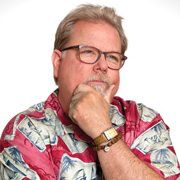
Bill Meagher is a contributing editor at NorthBay biz magazine. He is also a senior editor for The Deal, a Manhattan-based digital financial news outlet where he covers alternative investment, micro and smallcap equity finance, and the intersection of cannabis and institutional investment. He also does investigative reporting. He can be reached with news tips and legal threats at bmeagher@northbaybiz.com.
View all posts


